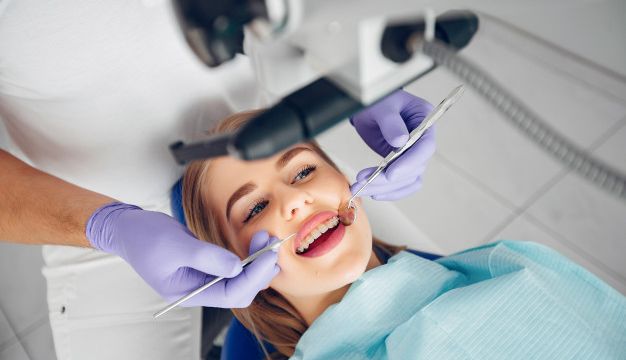
What You Need to Know to Make Sure Your Dental Visits Go as Smooth as Possible
If you, or someone you know have kidney disease, it’s a good idea to make your dental health a priority. For a person with this disease, keeping a healthy smile can take some extra effort. Kidney disease and dialysis can come with an array of health problems including an increased risk of dental complications. Because of this, it is important to have a consistent and appropriate oral care routine, and have regular dental checkups.
There are a few steps you can follow to make your appointments with us as effective as possible. Prevention is key. It is important to brush two times a day with a fluoride toothpaste, and floss once per day. Using a mouthwash can be an effective tool in combating oral health problems, too. You should also schedule your dental appointments in the days that follow a dialysis day.
These three tips will help you get the most out of each visit and help us ensure you will receive the proper care based on your medical situation – and history.
- It is important to make sure we know all of the medications you are taking. If you have a shunt you may be put on blood thinners which can put you at an increased risk of bleeding. This helps us choose the right cleaning methods for your teeth.
- Many physicians recommend taking an antibiotic before going to your dental appointment as kidney patients are at an increased risk for infection because of the shunt.
- Kidney disease can affect your blood counts. It is advisable to keep your dentist up to date on your most recent lab work as often as possible.
Studies have found that those with kidney disease and people on dialysis are more likely to have periodontal disease and other oral health problems than the general population. A buildup of bacteria in the mouth can cause an infection, and because those with kidney disease have a weakened immune system, they are more susceptible to these infections.
Also, the buildup of bacteria in the pockets under the gum line may get into your blood stream and cause an infection. This is why it is important to speak with your doctor about taking an antibiotic before a dental appointment.
Those on dialysis are also at an increased risk for tooth loss. Calcium imbalances as a result of dialysis can contribute to loss of calcium from the bones, resulting in weakened bones including the jaw. This can cause teeth to become loose and potentially fall out. To prevent this you should have routine lab work done to make sure that your calcium and phosphorus levels stay within an acceptable range. Dialysis patients are also at an increased risk for chronic bad breath. This happens because diseased kidneys can’t remove urea from the blood and it subsequently breaks down into ammonia which then creates an unpleasant smell.
Dry mouth is also another problematic side effect of dialysis treatment. Dialysis patients are at an increased risk for inflammation of their salivary glands. Saliva is mainly water and has enzymes that help digest starch. Saliva washes bits of food away from teeth and also makes your mouth more alkaline so that teeth are less likely to decay from acid that forms when food breaks down. Patients with a strict fluid intake may make less saliva. The lack of saliva can lead to bad breath, tooth decay, and gum disease.
For a patient on dialysis it is critical to take good care of your oral health. Consulting with your doctor, going for regular dental checkups, and keeping your dentist well informed of any health changes are key to your overall health. If you have any questions about how your medical condition impacts your oral health, we’re just a phone call away.
